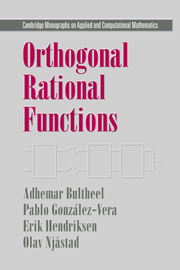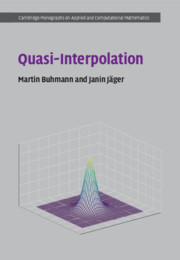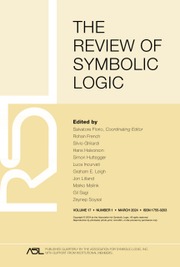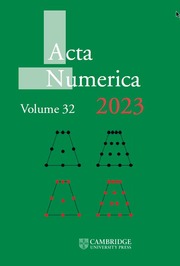Minimal Cubature Rules
Cubature rules are indispensable tools in scientific computing and applied sciences whenever evaluating or discretizing integrals is needed. This monograph is the first comprehensive resource devoted to cubature rules in English since Stroud's classic 1971 book, and the first book about minimal cubature rules. The book explores the subject's theoretical side, which intersects with many branches of mathematics. Minimal cubature rules are intimately connected with common zeros of orthogonal polynomials, which can be described via the polynomial ideals and varieties. Many prominent or practical cubature rules are invariant under a finite group, and some involve symmetric functions and the discrete Fourier transform. Based on state-of-the-art research, the book systematically studies Gauss and minimal cubature rules, and includes a chapter on the practical aspects of construction cubature rules on triangles and simplexes. This comprehensive guide is ideal for researchers and advanced graduate students across the computational and applied mathematics community.
- Presents state-of-the-art research on minimal cubature rules for the first time in book form
- Introduces indispensable tools in scientific computing and applied sciences, whose study intersects many topics in mathematics, including approximation theory, computational algebraic geometry, discrete Fourier analysis, numerical analysis, orthogonal polynomials, and sampling theory
- Includes a chapter on cubature rules on triangle and simplex, which play important roles in finite element methods for numerical solutions of differential equations
Product details
No date availableHardback
9781009663922
276 pages
229 × 152 mm
Table of Contents
- Preface
- 1. Quadrature rules and orthogonal polynomials
- 2. Cubature rules: basics
- 3. Orthogonal polynomials of several variables
- 4. Gauss cubature rules
- 5. Lower bounds for the number of nodes
- 6. First minimal cubature rules
- 7. Further minimal cubature rules
- 8. Discrete Fourier transform and cubature rules
- 9. Cubature rules and polynomial ideals
- 10. Epilogue: two open problems
- 11. Addendum: cubature rules on triangle and simplex
- References
- Index.










